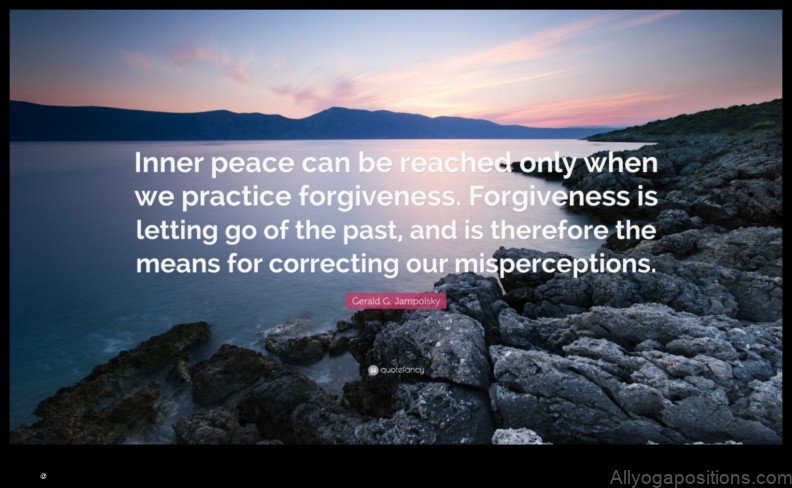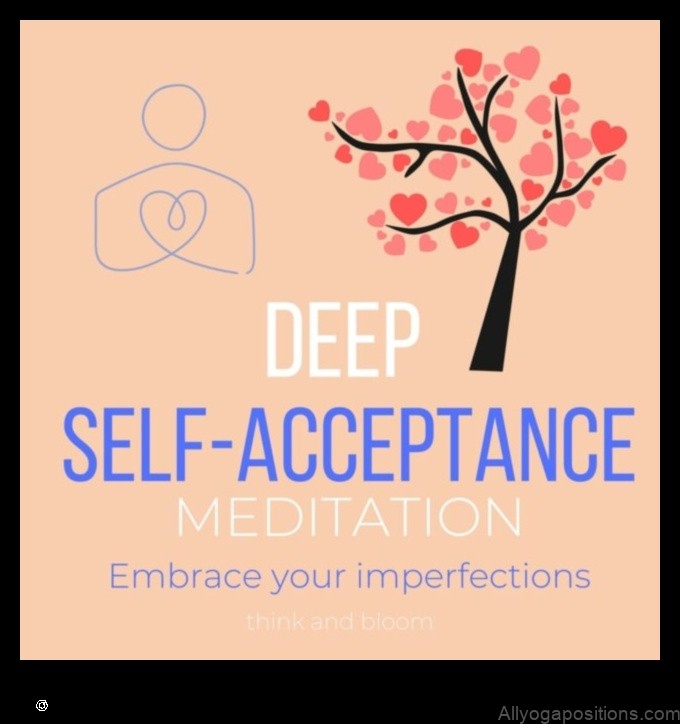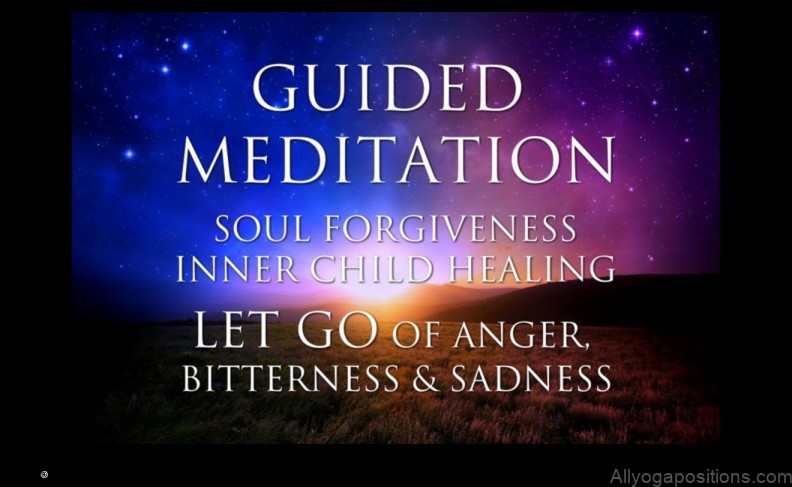
I. Introduction
II. What is meditation?
III. What is forgiveness?
IV. The benefits of meditation and forgiveness
V. How to meditate
VI. How to forgive
VII. The challenges of meditation and forgiveness
VIII. How to overcome the challenges
IX. Conclusion
X. FAQ
| Feature | Answer |
|---|---|
| Forgiveness | The act of letting go of anger or resentment towards someone who has wronged you. |
| Meditation | A practice that involves focusing the mind on a particular object or thought, in order to achieve a state of relaxation and inner peace. |
| Inner freedom | The state of being free from anger, resentment, and other negative emotions. |
| Letting go | The act of releasing control over something or someone, and allowing it to be as it is. |
| Spirituality | The belief in a higher power or being, and the connection between the physical and spiritual worlds. |

II. What is meditation?
Meditation is a practice that involves focusing one’s attention on a particular object, thought, or activity in order to achieve a state of mental calmness and clarity. There are many different types of meditation, but all share the goal of helping the practitioner to relax, focus, and connect with their inner self.
Meditation has been shown to have a number of benefits for both physical and mental health, including reducing stress, improving sleep, boosting mood, and increasing creativity. It can also help to improve focus, concentration, and memory.
If you are interested in learning more about meditation, there are many resources available online and in libraries. You can also find classes and workshops offered at your local community center or yoga studio.
III. What is forgiveness?
Forgiveness is the intentional act of letting go of anger, resentment, and other negative emotions towards someone who has wronged you. It is not about condoning or excusing the other person’s behavior, but it is about choosing to release your negative emotions so that you can move on with your life.
Forgiveness is not always easy, but it is often necessary for our own well-being. When we hold on to anger and resentment, we are only hurting ourselves. Forgiveness allows us to let go of the past and move forward with our lives.
Forgiveness is a process, and it may take time to fully forgive someone who has wronged you. However, if you are willing to put in the effort, it is possible to let go of your negative emotions and find peace.
There are many benefits to forgiveness, including:
- Reduced stress and anxiety
- Improved mental health
- Increased happiness and well-being
- Stronger relationships
- Improved physical health
If you are struggling to forgive someone, there are many resources available to help you. You can talk to a therapist, read books on forgiveness, or join a support group. Forgiveness is not easy, but it is possible. If you are willing to put in the effort, it is worth it.

IV. The benefits of meditation and forgiveness
Meditation and forgiveness have been shown to have a number of benefits for both physical and mental health. Some of the benefits of meditation include:
- Reduced stress and anxiety
- Improved focus and concentration
- Increased calmness and relaxation
- Improved sleep
- Reduced pain
- Improved mood
- Increased happiness
- Enhanced creativity
Some of the benefits of forgiveness include:
- Reduced anger and resentment
- Improved relationships
- Increased happiness and well-being
- Reduced risk of heart disease and stroke
- Improved immune function
Meditation and forgiveness can help to improve our physical and mental health, and can lead to a more peaceful and fulfilling life.
V. How to meditate
Meditation is a practice that has been around for thousands of years. It is a way to quiet the mind and focus on the present moment. There are many different ways to meditate, but some common techniques include:
- Mindfulness meditation
- Focused meditation
- Transcendental meditation
Meditation can be done anywhere, but it is often helpful to find a quiet place where you will not be disturbed. You can sit in a chair, cross-legged on the floor, or lie down.
When you are ready to begin, close your eyes and take a few deep breaths. Focus on your breath as it flows in and out of your body. As thoughts arise, let them go and return your focus to your breath.
Continue to meditate for as long as you like. When you are finished, open your eyes and take a few more deep breaths.
Meditation can be a very rewarding practice. It can help you to reduce stress, improve your focus, and increase your sense of well-being. If you are new to meditation, it may take some time to find a technique that works for you. Be patient and persistent, and you will eventually find that meditation can be a valuable tool for your life.
VI. How to forgive
Forgiveness is a process, and there is no one-size-fits-all approach. However, there are some general principles that can help you on your journey to forgiveness.
First, it is important to understand that forgiveness is not about condoning or excusing the other person’s behavior. It is about letting go of the anger and resentment that you are holding onto.
Second, it is important to remember that forgiveness is not for the other person. It is for you. When you forgive someone, you are releasing yourself from the burden of anger and resentment.
Third, forgiveness is a choice. You do not have to forgive someone if you do not want to. However, if you are struggling with anger and resentment, forgiveness can be a powerful tool for healing.
There are many different ways to forgive someone. Some people find it helpful to talk to the other person about what happened. Others find it helpful to write a letter to the other person, even if you never send it. Still others find it helpful to simply meditate on the other person and let go of the anger and resentment.
There is no right or wrong way to forgive. The important thing is to find a way that works for you.
VII. The challenges of meditation and forgiveness
Meditation and forgiveness can be challenging practices, but they are also very rewarding. Here are some of the challenges that you may face when trying to meditate and forgive:
You may feel uncomfortable or bored when you meditate. This is a normal reaction. Meditation is not supposed to be easy. It takes practice to learn how to quiet your mind and focus on your breath.
You may feel anger or resentment when you try to forgive someone. This is also a normal reaction. Forgiveness is not about condoning someone’s behavior. It is about letting go of your anger and resentment so that you can move on with your life.
You may feel like you are not making any progress. This is a common feeling, especially in the beginning. Meditation and forgiveness are not quick fixes. It takes time and effort to see results.
You may be afraid of what will happen if you let go of your anger or resentment. This is a valid fear. Letting go of anger and resentment can be scary. It can mean facing difficult emotions and making changes in your life.
However, despite the challenges, meditation and forgiveness can be very beneficial. They can help you to reduce stress, improve your mood, and increase your sense of well-being. They can also help you to improve your relationships and live a more peaceful and fulfilling life.
If you are struggling with meditation or forgiveness, there are resources available to help you. You can find books, articles, and online courses on these topics. You can also find support groups and therapists who can help you to work through your challenges.
How to overcome the challenges
VIII. How to overcome the challenges
Meditation and forgiveness can be challenging, but there are a number of ways to overcome the challenges.
Here are a few tips:
- Be patient with yourself. It takes time to learn how to meditate and forgive others. Don’t get discouraged if you don’t see results immediately.
- Find a supportive community. There are many online and offline communities that can help you on your journey of meditation and forgiveness.
- Seek professional help. If you are struggling with anger or resentment, it may be helpful to seek professional help. A therapist can help you work through your emotions and develop healthy coping mechanisms.
With practice, meditation and forgiveness can help you to live a more peaceful and fulfilling life.
Meditation and forgiveness are two powerful practices that can help us to let go of anger, resentment, and other negative emotions. When we meditate, we learn to focus our attention on the present moment and to let go of thoughts and feelings that are not serving us. Forgiveness allows us to let go of the past and to move on with our lives. When we combine these two practices, we can experience a deep sense of inner freedom and peace.
If you are struggling with anger, resentment, or other negative emotions, I encourage you to try meditation and forgiveness. These practices can help you to let go of the past and to live a more peaceful and fulfilling life.
Q: What is meditation?
A: Meditation is a practice that involves focusing the mind on a single point of attention, such as the breath or a mantra. It can be done sitting in a chair, lying down, or even while walking. Meditation has been shown to have a number of benefits for both physical and mental health, including reducing stress, improving focus, and boosting mood.
Q: What is forgiveness?
A: Forgiveness is the act of letting go of anger and resentment towards someone who has wronged you. It does not mean condoning their behavior or forgetting what they did, but it does mean choosing to no longer let their actions control your life. Forgiveness can be a difficult process, but it is one that can bring great freedom and peace of mind.
Q: What are the benefits of meditation and forgiveness?
A: Meditation and forgiveness have a number of benefits in common, including reducing stress, improving focus, and boosting mood. Additionally, meditation can help to increase mindfulness and awareness, while forgiveness can help to improve relationships and reduce conflict.
Table of Contents
Maybe You Like Them Too
- Meditation and Sleep 5 Techniques for a Restful Night
- Chaturanga Dandasana The 4-Limbed Staff Pose That Strengthens and Tones
- Mindful Parenting A Guide to Fostering Connection and Reducing Stress
- Joyful Journey Yoga for Delight – A Guide to Finding Happiness and Well-Being
- Grounded Gratitude Yoga for Earth Connection mindful practice to connect with nature and cultivate gratitude.
